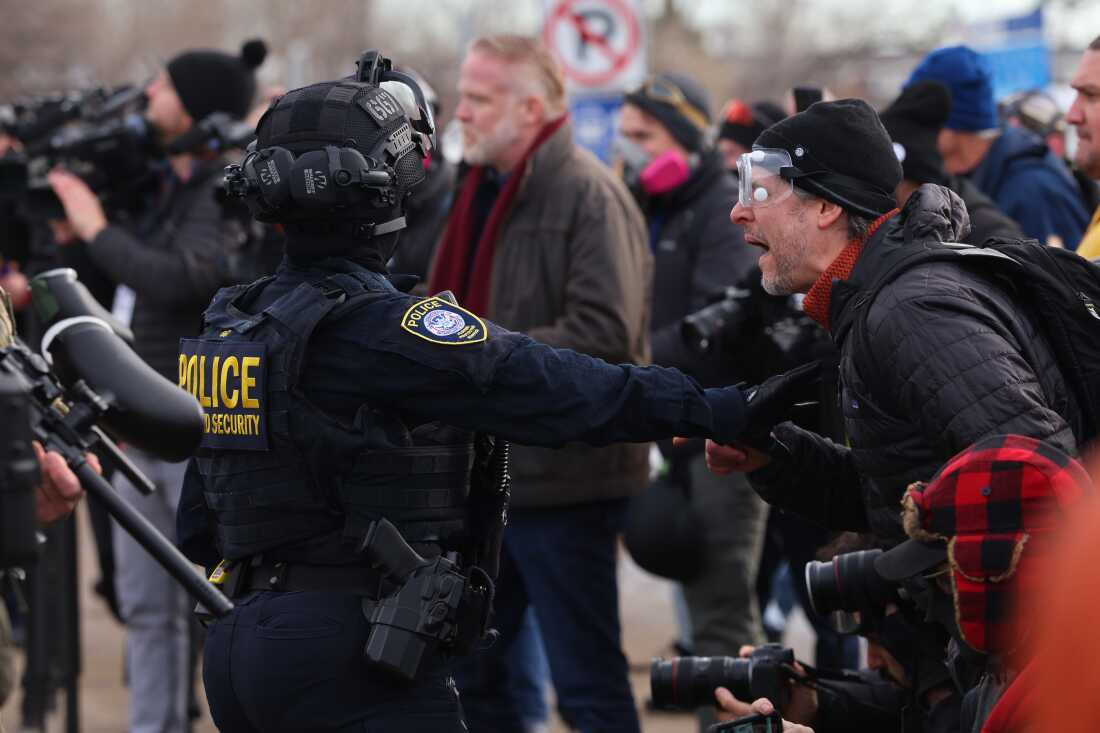Young Americans’ confidence in the apparatus of government has dropped dramatically to one of the lowest levels in any prosperous country, a Financial Times analysis of Gallup data shows.
The Gallup polls, conducted by surveying 70,000 people globally over the course of 2023 and 2024, found that less than a third of under-30s in the US trust the government. The proportion of US young people who said they lack freedom to choose what to do with their lives also hit a record high at 31 per cent in 2024 — a level worse than all other rich economies, bar Greece and Italy.
“[For younger people in the US] the future seems kind of bleak,” said Julie Ray, managing editor at Gallup.
While the Gallup poll does not cover the direct repercussions of US President Donald Trump’s second term, experts believe that rising political polarisation is likely to lead to a sharp drop in trust in future surveys.
Connor Brennan, a 25-year-old financial economics PhD student at the University of Chicago, and disillusioned Republican, said he trusted the “big figures” in politics “a little less” now than in the past.
“Friends, families these days are more and more torn apart by politics and seeing that (politics) taken as almost entertainment,” Brennan said. “It should be boring . . . it really has become more and more like, you watch the latest episode of the sitcom.”
The proportion of young people in the US reporting no confidence in the judicial system also hit a record high in 2024, while more than a third of under-30s also do not trust the police.
“I would not say I trust the government — a lot of things that have changed quite recently that call the government’s ability to be honest with the American people into question,” said Daniel Quezada, a 22-year-old substitute teacher in Arkansas, adding that he also had a “profound, profound sense of scepticism” regarding the police after being peacefully involved in protests in 2020.
Elsewhere in the world, young people in Greece and Italy are among the most dissatisfied with public services and confidence in institutions. Nordic economies, such as Finland, Denmark and Norway, tend to be the best performers.
Some 61 per cent of young people in the US also reported having recently experienced stress, the third-highest proportion among advanced economies after Greece and Canada.
US Centers for Disease Control and Prevention data show US emergency department visits for self-harm reached 384 people per 100,000 population among those aged 10 to 29 in 2022, up from 260 a decade earlier and four times the rate for those aged 30 and over.
The collapse in young people’s happiness in the US and elsewhere has been pinned on factors ranging from political polarisation, stagnating quality of life to difficulties in getting on the property ladder.
Haifang Huang, an economics professor at the University of Alberta, referred to “a laundry list” of factors, including labour-market challenges after the 2008-09 global financial crisis, the high cost of housing and rising inequality among the young exacerbated by inheritance and parental supports. “It is hard to evaluate their relative contributions.”
Social psychologist Jonathan Haidt in his book, The Anxious Generation, blames the mental health crisis in all main Anglosphere countries on the mass adoption of smartphones, along with the advent of social media and addictive online gaming.
John Helliwell, a founding editor of Gallup’s World Happiness Report, said that the trends in the data supported the view that the decline in trust and wellbeing among young people “has something to do with the kind of stories being told on social media”.
Political polarisation, meanwhile, had also resulted in a “situation where there’s no agreed set of common information”.
“If there’s nobody who you believe, then of course, your trust is going to be low in everybody,” Helliwell said. “That’s been increasingly happening in the US, because people are denying each other’s facts and living in their own media isolation.”
While young Americans are relatively upbeat about their economic prospects — a reflection of their higher-than-average earnings and low unemployment rate — some are becoming gloomy about growth too.
“The economy isn’t doing great — there were a lot of issues with relatively high inflation and high cost of living, massive wealth inequality, concerns with employment that were iterated by both sides in the election leading up to this year,” said Misha Newbold, a 20-year-old student at Johns Hopkins University in Baltimore who grew up in Kansas.
Newbold added that he disagreed with cuts to federal agencies undertaken by technology billionaire Elon Musk’s Department of Government Efficiency (Doge). “I think cutting employment opportunities, shrinking a lot of the government agencies that make this country run . . . is actually counter-productive to the employment concerns.”
Brennan, meanwhile, said he was increasingly concerned about the US’s fiscal position, with the national debt set to balloon over the coming decade.
He also thinks an economic crisis borne of Trump’s policies would not be viewed by the president’s supporters as being down to mistakes made by the White House.
“That’s what worries me the most — that, even if we are confronted with issues that should cause us to have some sort of come to Jesus moment, I don’t think we’ll come to Jesus.”
Data visualisation by Valentina Romei and Alan Smith in London











































